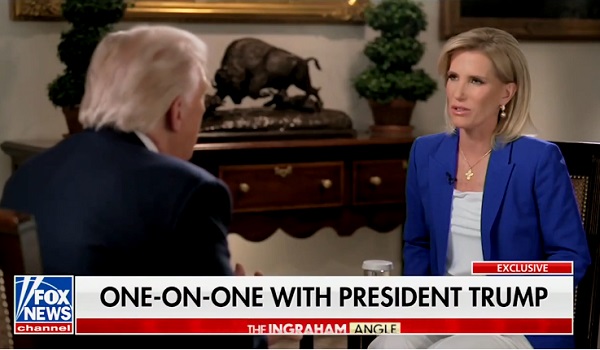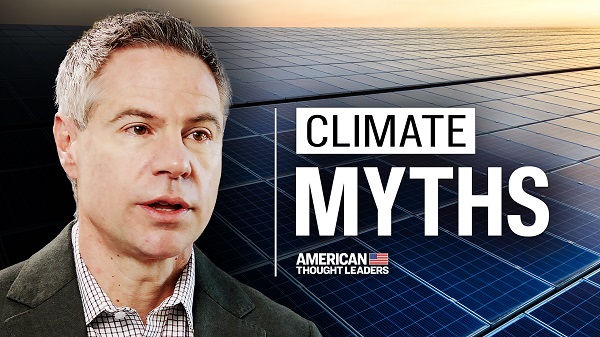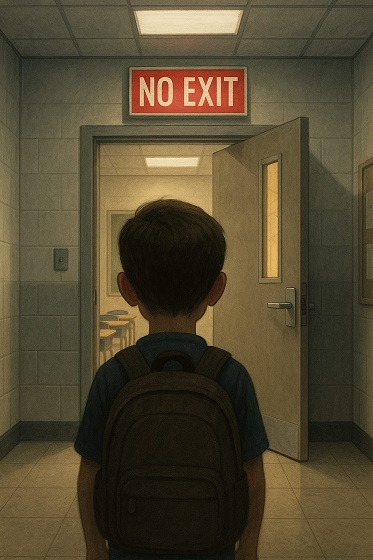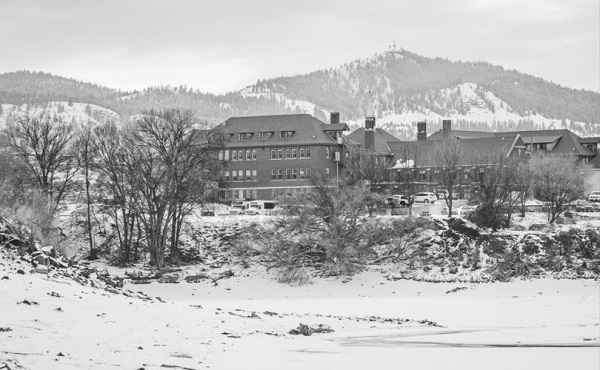Uncategorized
Kavanaugh faces crucial vote, White House eyes GOP senators

WASHINGTON — Supreme Court nominee Brett Kavanaugh faced a crucial vote Friday as a Senate panel decides whether to move his nomination on to the full Senate a day after he adamantly denied sexually assaulting Christine Blasey Ford, who insisted she’s “100
Meanwhile, there were signs the remarkable testimony before the panel — in which Kavanaugh angrily declared his innocence and Ford calmly recounting the moment in which she says he attacked her — had registered negatively with two organizations whose support Kavanaugh had earlier received.
The American Bar Association, which previously gave Kavanaugh its highest rating of “well qualified,” asked the Senate Judiciary Committee and the full Senate to delay the vote until the FBI could do a full background check on the assault claims — something President Donald Trump has refused to order.
White House spokeswoman Sarah Huckabee Sanders dismissed that Friday, telling reporters that Kavanaugh has already “been through six separate background investigations by the FBI.”
Late Thursday, the magazine of the Jesuit religious order in the United States withdrew its endorsement of Kavanaugh, saying the nomination was no longer in the interests of the country and “should be withdrawn.”
“If Senate Republicans proceed with his nomination, they will be prioritizing policy aims over a woman’s report of an assault,” the America magazine editors wrote. “Were he to be confirmed without this allegation being firmly disproved, it would hang over his future decisions on the Supreme Court for decades and further divide the country.”
The magazine’s reversal is significant given Kavanaugh has repeatedly cited his Roman Catholic faith and his years as a student at the Jesuit-run Georgetown Prep school in Maryland.
Former President George W. Bush has been advocating for Kavanaugh with wavering senators in recent days, according to a person familiar with Bush’s outreach who wasn’t authorized to speak publicly.
The White House said it was also engaging with wavering GOP senators, but provided few details. Trump is publicly standing by his nominee.
“His testimony was powerful, honest and riveting,” he tweeted late Thursday. “The Senate must vote!”
Thursday’s testimony appears to have only sharpened the partisan divide over Trump’s nominee. Republicans praised Ford’s bravery in coming forward, but many of them said her account won’t affect their support for Kavanaugh.
The Senate Judiciary Committee, where the initial vote on Kavanaugh will be held, is narrowly split with an 11-10 Republican majority. Democrats are expected to oppose the nominee. But even if the panel deadlocks on whether to recommend the judge for confirmation, the full Senate could start taking procedural votes Saturday on Kavanaugh, setting up a final vote as soon as Tuesday.
“We’re going to move forward,” said Senate Majority Leader Mitch McConnell, R-Ky., as he exited a private late night strategy session with Republican senators. “The committee is going to vote.”
Of the 11 Republicans on the Judiciary Committee, only the vote of GOP Sen. Jeff Flake of Arizona remains in doubt. The retiring senator, who has stayed quiet in recent days, told reporters late Thursday, “this isn’t easy.”
Flake said the marathon hearing left him “with as much doubt as certainty.” He said, “We just do the best we can.”
At the daylong session Thursday, Ford and Kavanaugh both said the event and the public controversy that has erupted 36 years later had altered their lives forever and for the worse — perhaps the only thing they agreed on during a long day of testimony that was a study in contrasts of tone as well as substance.
Coming forward publicly for the first time, Ford, a California psychology professor, quietly told the nation and the Senate Judiciary Committee her long-held secret of the alleged assault in locked room at a gathering of friends when she was just 15. The memory — and Kavanaugh’s laughter during the act — was “locked” in her brain, she said: “100
“You have replaced ‘advice and consent’ with ‘search and destroy,” he said, referring to the Constitution’s charge to senators’ duties in confirming high officials.
Repeatedly Democrats asked Kavanaugh to call for an FBI investigation into the claims. He did not.
“I welcome whatever the committee wants to do,” he said.
Republicans are reluctant for several reasons, including the likelihood that further investigations could push a vote past the November elections that may switch Senate control back to the Democrats and make consideration of any Trump nominee more difficult.
Across more than 10 hours, the senators heard from only the two witnesses. Ford delivered her testimony with steady, deliberate certitude. She admitted gaps in her memory as she choked back tears and said she “believed he was going to rape me.” Kavanaugh entered the hearing room fuming and ready to fight, as he angrily denied the charges from Ford and other women accusing him of misconduct, barked back at senators and dismissed some questions with a flippant “whatever.”
“You may defeat me in the final vote, but you’ll never get me to quit, never,” he said.
Trump nominated the conservative jurist in what was supposed to be an election year capstone to the GOP agenda, locking in the court’s majority for years to come. Instead the nomination that Republicans were rushing for a vote now hangs precariously after one of the most emotionally charged hearings Capitol Hill has ever seen. Coming amid a national reckoning over sexual misconduct at the top of powerful institutions, it exposed continued divisions over justice, fairness and who should be believed. And coming weeks before elections, it ensured that debate would play into the fight for control of Congress.
Wearing a blue suit as Anita Hill did more two decades ago when she testified about sexual misconduct by Clarence Thomas, Ford, a psychology professor, described what she says was a harrowing assault in the summer of 1982: How an inebriated Kavanaugh and another teen, Mark Judge, locked her in a room at a house party as Kavanaugh was grinding and groping her. She said he put his hand over her mouth to muffle her screams.
“I believed he was going to rape me,” she testified, referring to Kavanaugh.
Judge has said he does not recall the incident and he reiterated that point in a letter to the committee released late Thursday.
When the committee’s top Democrat, Sen. Dianne Feinstein of California, asked how she could be sure that Kavanaugh was the attacker, Ford said, “The same way I’m sure I’m talking to you right now.” Later, she told Sen. Dick Durbin, D-Ill., that her certainty was “100
Asked by Sen. Patrick Leahy, D-Vt., for her strongest memory of the alleged incident, Ford, said it was the two boys’ laughter.
“Indelible in the hippocampus is the laughter,” said Ford, who is a research psychologist, “the uproarious laughter between the two.”
An angry Kavanaugh, who testified after Ford, declared: “My family and my name have been totally and permanently destroyed.”
He lashed out over the time it took the committee to convene the hearing after Ford’s allegations emerged, singling out the Democrats for “unleashing” forces against him.
“This confirmation process has become a national disgrace,” he said. He mocked Ford’s allegations — and several others since — that have accused him of sexual impropriety. He scolded the senators saying their advice-and-consent role had become “search and destroy.”
Even if senators turn vote down his confirmation, he said, “you’ll never get me to quit.”
Kavanaugh, who has two daughters, said one of his girls said they should “pray for the woman” making the allegations against him, referring to Ford. “That’s a lot of wisdom from a 10-year-old,” he said chocking up. “We mean no ill will.”
The judge repeatedly refused to answer senators’ questions about the hard-party atmosphere that has been described from his peer group at Georgetown Prep and Yale, treating them dismissively.
“Sometimes I had too many beers,” he acknowledged. “I liked beer. I still like beer. But I never drank beer to the point of blacking out, and I never sexually assaulted anyone. “
___
Associated Press writers Kevin Freking, Mary Clare Jalonick, Juliet Linderman, Padmananda Rama, Matthew Daly, Julie Pace and AP photographers J. Scott Applewhite and Carolyn Kaster contributed to this report.
Lisa Mascaro, Alan Fram And Catherine Lucey, The Associated Press
Uncategorized
Trump Admin Establishing Council To Make Buildings Beautiful Again


From the Daily Caller News Foundation
By Jason Hopkins
The Trump administration is creating a first-of-its-kind task force aimed at ushering in a new “Golden Age” of beautiful infrastructure across the U.S.
The Department of Transportation (DOT) will announce the establishment of the Beautifying Transportation Infrastructure Council (BTIC) on Thursday, the Daily Caller News Foundation exclusively learned. The BTIC seeks to advise Transportation Secretary Sean Duffy on design and policy ideas for key infrastructure projects, including highways, bridges and transit hubs.
“What happened to our country’s proud tradition of building great, big, beautiful things?” Duffy said in a statement shared with the DCNF. “It’s time the design for America’s latest infrastructure projects reflects our nation’s strength, pride, and promise.”
“We’re engaging the best and brightest minds in architectural design and engineering to make beautiful structures that move you and bring about a new Golden Age of Transportation,” Duffy continued.
Mini scoop – here is the DOT’s rollout of its Beautifying Transportation Infrastructure Council, which will be tasked with making our buildings beautiful again. pic.twitter.com/
9iV2xSxdJM — Jason Hopkins (@jasonhopkinsdc) October 23, 2025
The DOT is encouraging nominations of the country’s best architects, urban planners, artists and others to serve on the council, according to the department. While ensuring that efficiency and safety remain a top priority, the BTIC will provide guidance on projects that “enhance” public areas and develop aesthetic performance metrics.
The new council aligns with an executive order signed by President Donald Trump in August 2025 regarding infrastructure. The “Making Federal Architecture Beautiful Again” order calls for federal public buildings in the country to “respect regional architectural heritage” and aims to prevent federal construction projects from using modernist and brutalist architecture styles, instead returning to a classical style.
“The Founders, in line with great societies before them, attached great importance to Federal civic architecture,” Trump’s order stated. “They wanted America’s public buildings to inspire the American people and encourage civic virtue.”
“President George Washington and Secretary of State Thomas Jefferson consciously modeled the most important buildings in Washington, D.C., on the classical architecture of ancient Athens and Rome,” the order continued. “Because of their proven ability to meet these requirements, classical and traditional architecture are preferred modes of architectural design.”
The DOT invested millions in major infrastructure projects since Trump’s return to the White House. Duffy announced in August a $43 million transformation initiative of the New York Penn Station in New York City and in September unveiledmajor progress in the rehabilitation and modernization of Washington Union Station in Washington, D.C.
The BTIC will comprise up to 11 members who will serve two-year terms, with the chance to be reappointed, according to the DOT. The task force will meet biannually. The deadline for nominations will end Nov. 21.
Uncategorized
New report warns WHO health rules erode Canada’s democracy and Charter rights

The Justice Centre for Constitutional Freedoms has released a new report titled Canada’s Surrender of Sovereignty: New WHO health regulations undermine Canadian democracy and Charter freedoms. Authored by Nigel Hannaford, a veteran journalist and researcher, the report warns that Canada’s acceptance of the World Health Organization’s (WHO) revised International Health Regulations (IHR) represents a serious erosion of national independence and democratic accountability.
The IHR amendments, which took effect on September 19, 2025, authorize the WHO Director-General to declare global “health emergencies” that could require Canada to follow directives from bureaucrats in Geneva, bypassing the House of Commons and the will of Canadian voters.
The WHO regards these regulations as “binding,” despite having no ability or legal authority to impose such regulations. Even so, Canada is opting to accept the regulations as binding.
By accepting the WHO’s revised IHR, the report explains, Canada has relinquished its own control over future health crises and instead has agreed to let the WHO determine when a “pandemic emergency” exists and what Canada must do to respond to it, after which Canada must report back to the WHO.
In fact, under these International Health Regulations, the WHO could demand countries like Canada impose stringent freedom-violating health policies, such as lockdowns, vaccine mandates, or travel restrictions without debate, evidence review, or public accountability, the report explains.
Once the WHO declares a “Pandemic Emergency,” member states are obligated to implement such emergency measures “without delay” for a minimum of three months.
Importantly, following these WHO directives would undermine government accountability as politicians may hide behind international “commitments” to justify their actions as “simply following international rules,” the report warns.
Canada should instead withdraw from the revised IHR, following the example of countries like Germany, Austria, Italy, Czech Republic, and the United States. The report recommends continued international cooperation without surrendering control over domestic health policies.
Constitutional lawyer Allison Pejovic said, “[b]y treating WHO edicts as binding, the federal government has effectively placed Canadian sovereignty on loan to an unelected international body.”
“Such directives, if enforced, would likely violate Canadians’ Charter rights and freedoms,” she added.
Mr. Hannaford agreed, saying, “Canada’s health policies must be made in Canada. No free and democratic nation should outsource its emergency powers to unelected bureaucrats in Geneva.”
The Justice Centre urges Canadians to contact their Members of Parliament and demand they support withdrawing from the revised IHR to restore Canadian sovereignty and reject blind compliance with WHO directives.
-

 Daily Caller2 days ago
Daily Caller2 days agoUS Nuclear Bomber Fleet Shares Fence With Trailer Park Linked To Chinese Intel-Tied Fraudster
-

 espionage2 days ago
espionage2 days agoChinese-Owned Trailer Park Beside U.S. Stealth Bomber Base Linked to Alleged Vancouver Repression Case
-

 Daily Caller2 days ago
Daily Caller2 days agoLaura Ingraham Presses Trump On Allowing Flood Of Chinese Students Into US
-

 COVID-192 days ago
COVID-192 days agoSpy Agencies Cozied Up To Wuhan Virologist Before Lying About Pandemic
-

 Environment2 days ago
Environment2 days agoThe Myths We’re Told About Climate Change | Michael Shellenberger
-

 Crime2 days ago
Crime2 days agoCBSA Bust Uncovers Mexican Cartel Network in Montreal High-Rise, Moving Hundreds Across Canada-U.S. Border
-

 Alberta15 hours ago
Alberta15 hours agoWhen Teachers Say Your Child Has Nowhere Else to Go
-

 armed forces2 days ago
armed forces2 days agoWhat A Second World War Aircraft Taught Me About Remembrance Day









